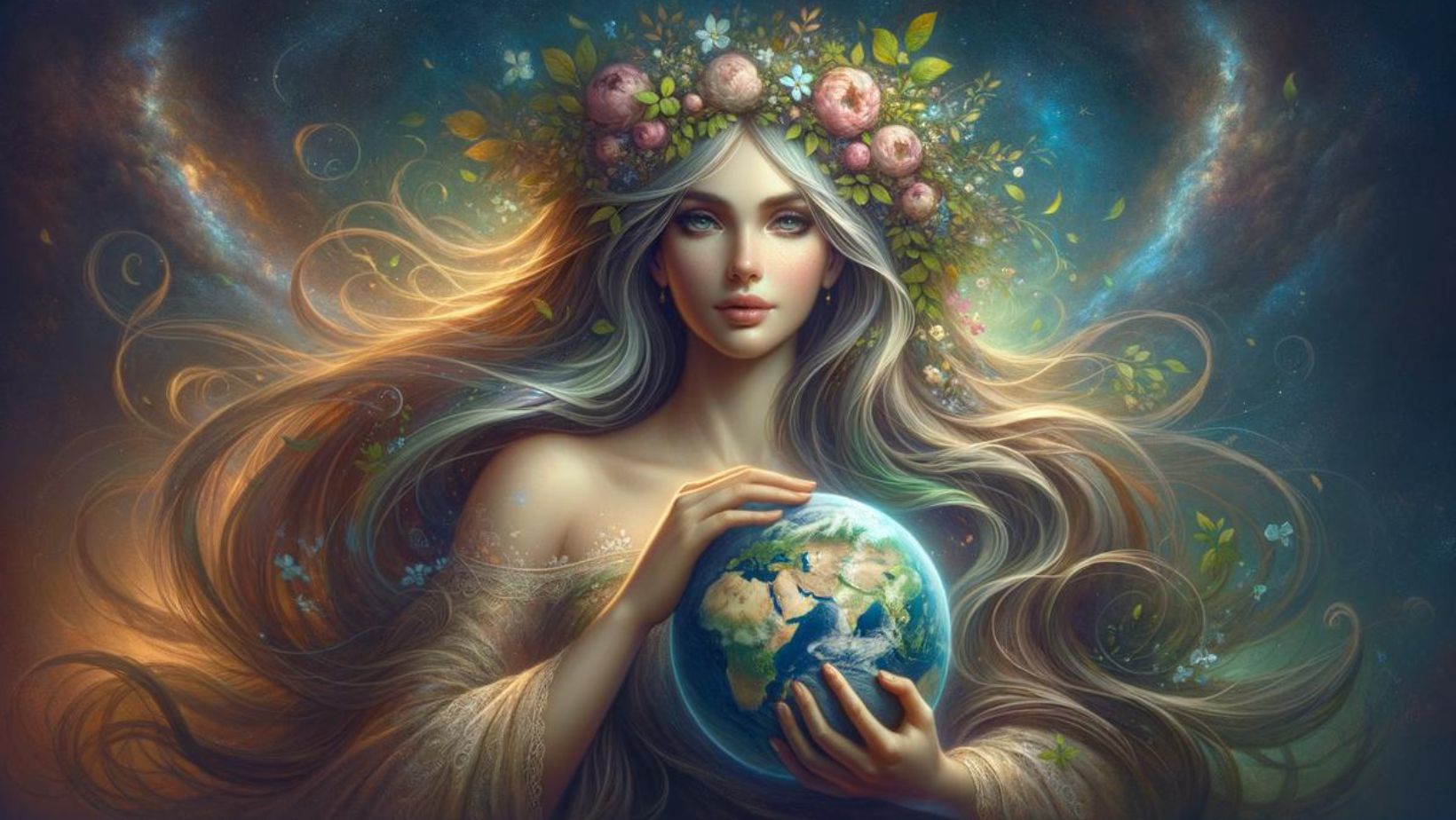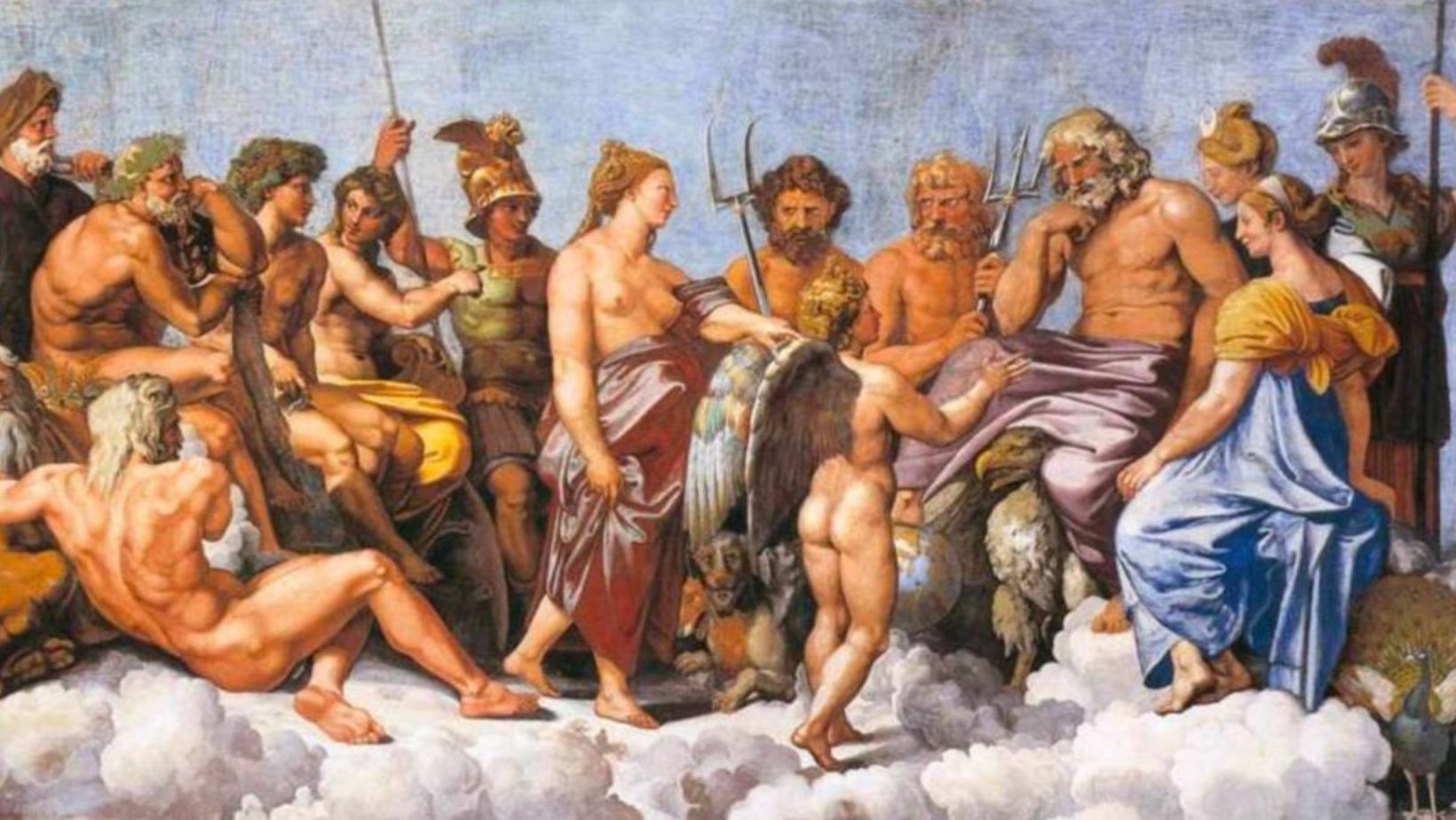Hey there, fellow mythology enthusiast! I want to tell you about one of my absolute favorite topics: Greek mythology creation. It’s a world filled with larger-than-life characters, epic battles, and mind-blowing stories that have captivated people for centuries. Trust me, once you dive into this fascinating realm, you’ll be hooked!
Picture this: a time before time when the universe was a vast, empty void. Suddenly, from the depths of chaos, the first primordial deities emerged, setting the stage for a cosmic drama that would shape the very fabric of existence. It’s a tale of love, betrayal, and power struggles that makes even the best Hollywood blockbusters seem tame in comparison.
The Origins of Greek Mythology Creation: Greek Mythology Creation
In the beginning, there was only chaos. A vast, dark void of nothingness. But from this primordial chaos, the first beings emerged, setting the stage for the creation of the universe and the birth of the gods.
According to the ancient Greeks, the world began with the primordial deities. These powerful beings were born from the void, and their existence marked the beginning of all things.
Primordial chaos, Gaea’s womb, Powerful beings

The Greek creation myth tells us that in the beginning, there was only Chaos. From this primordial void emerged Gaea, the personification of the Earth. Gaea’s womb then gave birth to the first generation of powerful beings, including Uranus (the sky), Pontus (the sea), and the Ourea (the mountains).
These primordial deities were the foundation of the Greek pantheon and played a crucial role in shaping the world as we know it. They embodied the natural forces that governed the universe, and their existence was essential to the creation of all things.
Table of Contents:
- The Origins of Greek Mythology Creation
- The Rise of the Titans
- The Olympian Gods
- Prometheus and the Creation of Mankind
- The Ages of Man
- The Legacy of Greek Creation Myths
- Conclusion
The Rise of the Titans: Greek Mythology Creation
As the primordial deities continued to shape the world, a new generation of gods emerged. These were the Titans, the children of Uranus and Gaea, and they would come to play a significant role in creating the universe.
Uranus and Gaea
Uranus, the sky, and Gaea, the earth, were two of the most important primordial deities. Together, they gave birth to the Titans, a race of powerful gods who would come to rule the universe.
However, Uranus was a cruel father, imprisoning his children deep within Gaea’s womb. This angered Gaea, and she plotted against her husband, enlisting the help of her youngest son, Cronus.
The Birth of the Titans: Greek Mythology Creation
Gaea gave birth to twelve Titans, six males and six females. Among them were Oceanus, Tethys, Hyperion, Theia, Coeus, Phoebe, Cronus, Rhea, Mnemosyne, Themis, Crius, and Iapetus. Each of these Titans had their own unique powers and abilities, and they would come to play a significant role in the creation of the universe.
Cronus overthrows Uranus
With the help of Gaea, Cronus, the youngest of the Titans, overthrew his father Uranus. He castrated him with a sickle and threw his genitals into the sea, from which Aphrodite, the goddess of love and beauty, was born.
Cronus then took his place as the ruler of the universe, ushering in the Golden Age of the Titans. However, his rule was not to last, as a prophecy foretold that he would be overthrown by his own children, just as he had overthrown his father.
The Olympian Gods: Greek Mythology Creation

As the Titans ruled the universe, a new generation of gods was born. These were the Olympians, the children of Cronus and Rhea, and they would come to overthrow the Titans and take their place as the rulers of the universe.
The Birth of Zeus
Fearing the prophecy that he would be overthrown by his own children, Cronus devoured each of his offspring as soon as they were born. However, Rhea, his wife, managed to save their youngest son, Zeus, by hiding him away on the island of Crete.
Zeus grew up on Crete, nursed by the nymph Amalthea and protected by the Curetes, who drowned out his cries with their loud dancing and drumming. When he came of age, Zeus returned to confront his father and free his siblings.
Zeus defeats Cronus: Greek Mythology Creation
With the help of his siblings and allies, Zeus waged a ten-year war against Cronus and the Titans, known as the Titanomachy. Eventually, Zeus emerged victorious, overthrowing Cronus and banishing the Titans to Tartarus, the deepest part of the underworld.
According to Hesiod’s Theogony, Zeus used his father’s own weapon, the sickle, to defeat him. He also released his siblings from Cronus’ stomach, and together they divided the universe among themselves.
The Rise of the Olympians
With the Titans defeated, Zeus and his siblings took their place as the rulers of the universe. Zeus became the king of the gods and ruler of the sky, while Poseidon became the god of the sea and Hades the god of the underworld.
The other Olympian gods, including Athena, Apollo, Artemis, Ares, Aphrodite, Hermes, and Hephaestus, each had their own domains and responsibilities. Together, they formed the pantheon of the twelve Olympian gods, who would be worshipped by the ancient Greeks for centuries to come.
Prometheus and the Creation of Mankind: Greek Mythology Creation
As the Olympian gods took their place as the rulers of the universe, the Titan Prometheus played a crucial role in the creation of mankind. Prometheus was known for his intelligence and cunning, and the ancient Greeks revered him as a hero.
Prometheus creates man: Greek Mythology Creation
According to Greek mythology, Prometheus created mankind out of clay. He shaped the first humans in the image of the gods, giving them the ability to stand upright and walk on two legs.
Prometheus then assigned his brother Epimetheus to give each animal a unique quality. However, by the time he got to humans, Epimetheus had already given out all the good qualities. Prometheus made humans superior to animals by giving them fire, which he stole from the gods.
The gift of fire: Greek Mythology Creation
Prometheus’ gift of fire to mankind was a turning point in human history. With fire, humans could cook food, stay warm, and create tools and weapons. This allowed them to become the dominant species on earth and set them apart from the animals.
However, Prometheus’ actions angered Zeus, who saw the gift of fire as a threat to the gods’ power. As punishment, Zeus chained Prometheus to a rock in the Caucasus Mountains, where an eagle would eat his liver every day, only for it to grow back each night.
Prometheus’ punishment
Prometheus’ punishment symbolized the gods’ power over mankind. It reminded us that even the most powerful and intelligent beings were subject to the gods’ will.
The Ages of Man: Greek Mythology Creation
According to Greek mythology, mankind’s history was divided into five distinct ages, each characterized by a different level of morality and prosperity. These ages were known as the Golden Age, the Silver Age, the Bronze Age, the Heroic Age, and the Iron Age.
The Golden Age
The Golden Age was the first and most prosperous age of mankind. During this time, humans lived in peace and harmony with the gods, and the earth provided all the food and resources they needed. There was no need for laws or governments, as everyone lived according to the principles of justice and morality.
The Silver Age
The Silver Age was a time of decline, as humans began to stray from the principles of the Golden Age. They became greedy and selfish, and the gods began withdrawing their favor. As a result, the earth became less bountiful, and humans had to work harder to survive.
The Bronze Age: Greek Mythology Creation
The Bronze Age was characterized by the rise of warfare and violence. Humans began to make weapons out of bronze, and they used them to fight each other for land and resources. The gods became increasingly distant during this time, and humans had to rely on their own strength and cunning to survive.
The Iron Age
The Iron Age was the final and most degenerate age of mankind. During this time, humans had lost all sense of morality and justice, and they lived in a state of constant warfare and strife. The gods had abandoned them completely, and they were left to fend for themselves in a harsh and unforgiving world.
The Legacy of Greek Creation Myths: Greek Mythology Creation
The Greek creation myths have had a lasting impact on Western culture and civilization. They have inspired countless works of art, literature, and philosophy, and they continue to capture the imaginations of people around the world.
Influence on Greek culture
The Greek creation myths were an integral part of ancient Greek culture. They provided a framework for understanding the world and humans’ place within it. The stories of the gods and heroes were used to teach moral lessons and inspire people to live virtuous lives.
The myths also played a crucial role in Greek religion and ritual. The gods were worshipped through sacrifices, festivals, and other ceremonies, and their stories were retold in plays, poems, and other works of art.
The enduring fascination with Greek mythology
Although the ancient Greek religion has long since faded, the fascination with Greek mythology endures to this day. The stories of the gods and heroes continue to inspire new generations of artists, writers, and thinkers.
Part of the enduring appeal of Greek mythology lies in its timeless themes and universal human experiences. The stories of love, loss, betrayal, and redemption are as relevant today as they were thousands of years ago. They speak to the human condition in a way that transcends time and culture.
Another reason for Greek mythology’s enduring popularity is its rich and complex characters. The gods and heroes of Greek myth are not one-dimensional figures but complex and flawed individuals with their own desires, fears, and weaknesses. This makes them relatable and endlessly fascinating to modern audiences.
In conclusion, the Greek creation myths are a testament to the enduring power of storytelling. They have shaped Western culture in countless ways, and they continue to inspire and captivate people worldwide. As long as there are humans who seek to understand their place in the universe, the stories of the gods and heroes will endure.
Key Takeaway: Greek Mythology Creation
Greek mythology starts with chaos, from which primordial deities like Gaea and Uranus emerge. Their offspring, the Titans, shape the universe until Zeus overthrows them to establish the Olympian gods’ rule. Prometheus creates mankind and gives them fire, leading to his punishment by Zeus.
Conclusion: Greek Mythology Creation
Greek mythology creation is a testament to the enduring power of storytelling. These ancient tales have survived for centuries, captivating generations with their timeless themes and unforgettable characters. From the primordial deities to the Olympian gods, each figure plays a crucial role in shaping the world as we know it.
But the true magic of these myths lies in their ability to reflect the human experience. They speak to our deepest fears, our greatest hopes, and our most profound desires. In a way, the gods and goddesses of Greek mythology are not so different from us – they love, they fight, they make mistakes, and they strive for greatness.
So the next time you find yourself gazing up at the stars or marveling at the beauty of the natural world, remember the incredible stories of Greek mythology creation. They are a reminder that even in the darkest of times, there is always hope, always the potential for new beginnings and incredible transformations.
